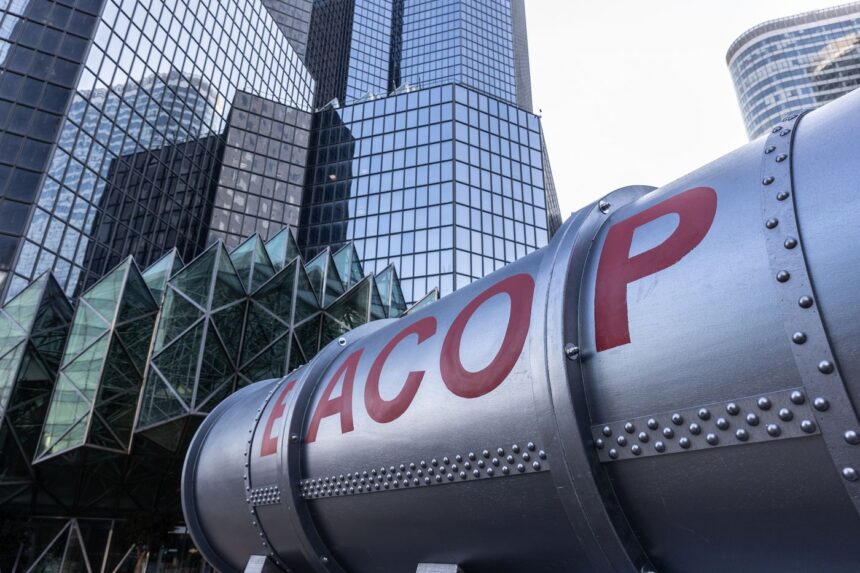Sumitomo Mitsui Financial Group Inc., a Japanese bank, has stated that it is not providing financing for an oil pipeline project in East Africa, joining the ranks of financial institutions distancing themselves from the controversial venture.
During a media briefing on Tuesday, Chief Sustainability Officer Masayuki Takanashi clarified the bank’s position, saying, “We are not currently involved” in the East African Crude Oil Pipeline (EACOP) project. Takanashi declined to comment on the bank’s past involvement in the earlier stages of the project. Still, environmental group 350.org had previously identified the bank as a financial advisor before their recent statement.
In a separate development, Standard Chartered also announced that it would no longer finance the EACOP project. This decision comes in response to mounting pressure from the StopEACOP campaign, which has been critical of the project. Standard Chartered had previously confirmed that it was conducting due diligence on financing the $5 billion venture. However, in light of public pressure, the bank clarified that it is no longer involved in the project’s financing.
China Steps In to Finance East African Crude Oil Pipeline Amid Lender Withdrawals
The EACOP project, led by French oil major TotalEnergies, aims to construct a pipeline spanning 900 miles from the oil fields in western Uganda to the Tanzanian coast. Even before construction commenced, the project faced significant controversy. Local communities and activists have voiced concerns about the potential environmental impact and the well-being of those residing in the pipeline’s path. Additionally, there are worries about the project’s contribution to carbon emissions and its threat to protected ecosystems and wildlife populations.
Standard Chartered’s decision adds to the growing list of 24 banks that have distanced themselves from the EACOP. With a requirement for a $2-3 billion project finance loan to proceed, the project has lost the support of nine out of TotalEnergies’ top 10 financiers.
Standard Chartered currently chairs the Equator Principles, a set of guidelines employed by the banking sector to evaluate environmental and social risks associated with large projects. The withdrawal of Standard Chartered from the EACOP after assessing it against the Equator Principles sends a clear message that the project and its associated oil ventures fail to meet international standards.
The StopEACOP campaign remains determined to urge other firms involved in the project, particularly the three financial advisers—Standard Bank, Sumitomo Mitsui Banking Corporation (SMBC), and the Industrial and Commercial Bank of China (ICBC)—along with insurance broker Marsh, to follow Standard Chartered’s lead and withdraw support. The campaign advocates for these institutions to redirect their investments toward genuine climate solutions instead.


